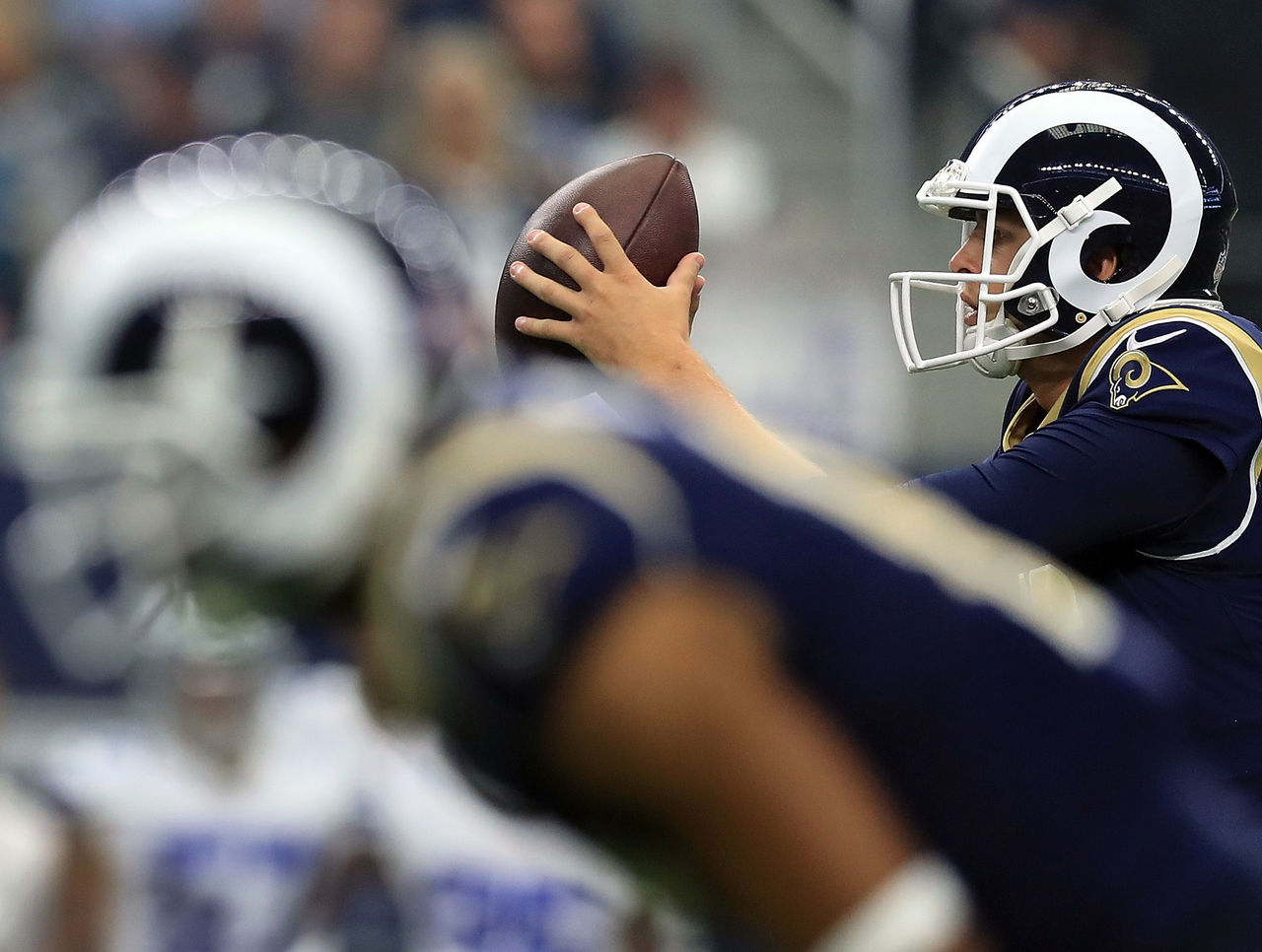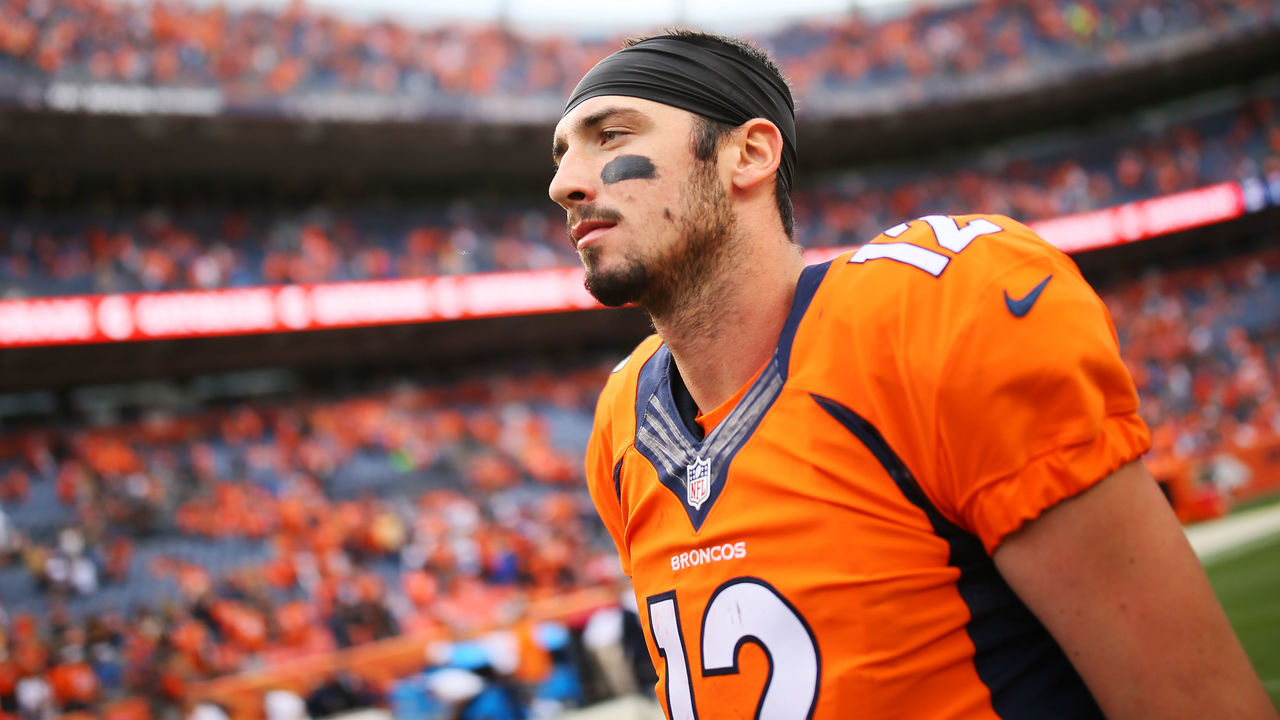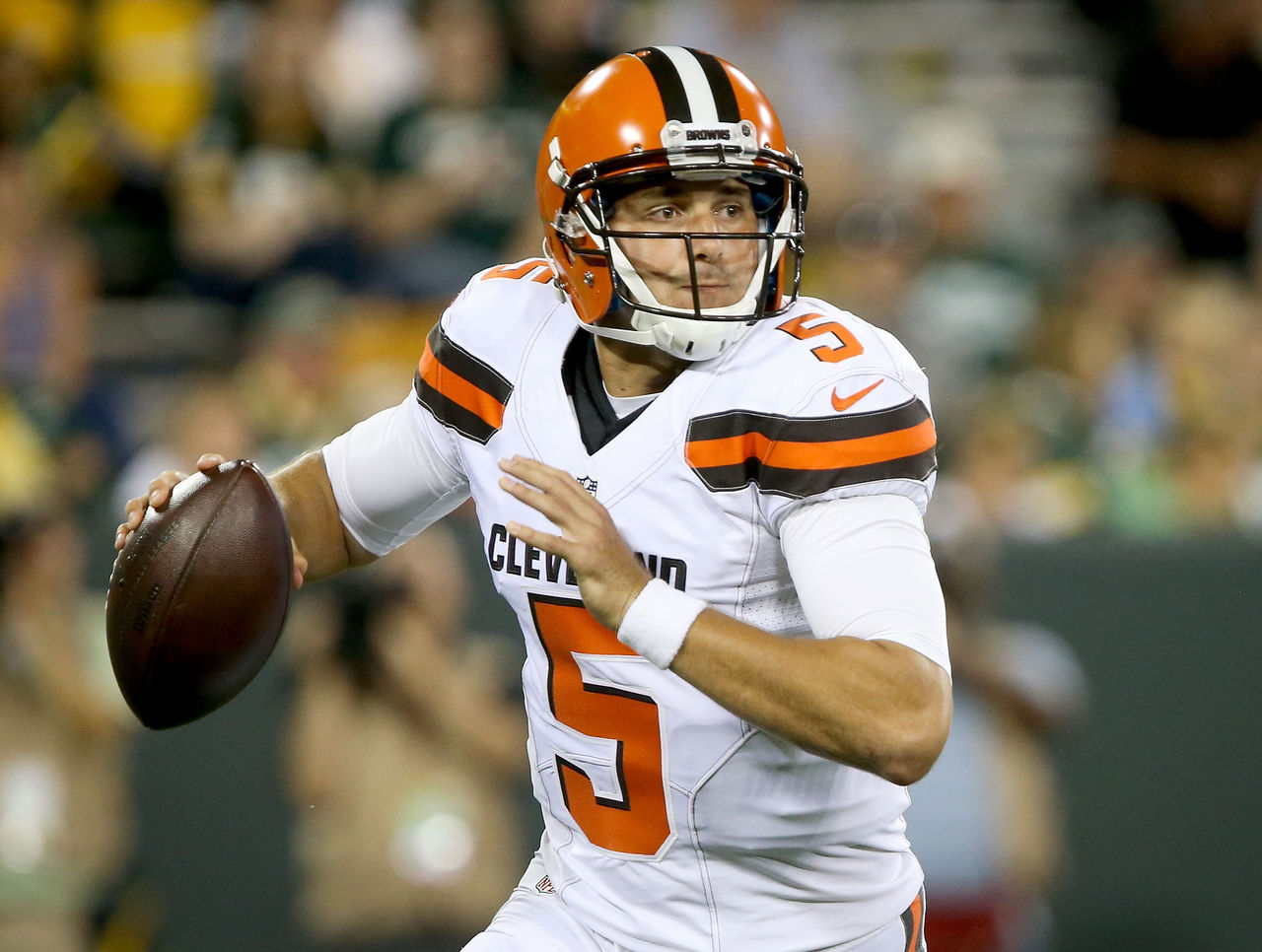Sage Rosenfels column: Goff, Wentz, Prescott lead 2016 QB draft class
Sage Rosenfels is a former 12-year NFL quarterback who writes, does radio, and podcasts about the NFL and college football. Find him on Twitter @SageRosenfels18.
With quarterbacks from the 2016 draft class now a season-and-a-half into their NFL careers, it's a good time to evaluate which ones are on the track to stardom - and which ones are still spinning their wheels. Here's a look at the first eight QBs taken in 2016, in order of when they were drafted.
Jared Goff, Los Angeles Rams

No player in the NFL has improved more since last year than Goff, the No. 1 overall pick in 2016.
In his rookie season, Goff sat behind Case Keenum for the first nine games. When he finally began starting games in Week 10, Goff looked like a bust. He completed only 54 percent of his passes with five touchdowns and seven interceptions. Head coach Jeff Fisher was fired and Washington Redskins offensive coordinator Sean McVay was hired.
What a difference a year makes. Or, I should say, what a difference a good coach makes.
When the Rams brought in McVay, many in NFL coaching circles were perturbed that a 31-year-old received the reins of an NFL franchise while other worthy candidates have waited decades to get a head job - and many were skeptical that McVay and Goff would succeed. But in only nine weeks, the Rams have become a legitimate NFC contender.
McVay's system is a perfect match for Goff. The offense - similar to those that have been run in Washington and Atlanta the last few years - puts a premium on a quarterback executing within the system. Goff is smart, throws accurately, and has a strong enough arm to execute McVay's play-action attack.
Most importantly, Goff has an old-school football team he can rely on. The Rams don't need him to make spectacular plays in order to win. As has been the case for several years, the Rams have a top-10 defense. On offense, they're finally utilizing Todd Gurley, one of few franchise running backs in today’s NFL.
The defense and running game allow Goff to play to his strengths. He isn’t nearly as physically talented as Wentz, Dak Prescott, Deshaun Watson, or other quarterbacks drafted in the last few years. But Goff manages his offense, stays away from turnovers, completes key passes on third downs, and knows when to take a shot down the field. That's a key aspect of McVay's scheme: a quarterback who can accurately throw the deep ball.
In Sunday's win versus the Giants, Goff waited until Pro Bowl safety Landon Collins became too aggressive in the running game. After coming out of a play-action fake, he found Sammy Watkins with a perfectly thrown deep post for a touchdown.
Goff’s improvement makes complete sense, since the table was set for a Rams quarterback to step in and succeed. L.A. had all the ingredients for a well-balanced team, but lacked good offensive coaching. McVay was the Rams' biggest acquisition last offseason, and Goff's reaping the rewards.
Carson Wentz, Philadelphia Eagles

Before the 2016 draft, I was asked to compare Goff and Wentz dozens of times, as they seemed to be the best of a deep class at quarterback.
While most tabbed Goff as the No. 1 pick, I believed Wentz had more upside. So, as former backup quarterbacks like to do, I'm going to give myself a pat on the back. Good job, Sage.
In a one-week span, Wentz went from the third quarterback on the Eagles' roster (behind Sam Bradford and Chase Daniel) to starting the opening game of the season. Though Philadelphia went 7-9 and missed the playoffs, Wentz and the Eagles beat five teams that made the playoffs last year.
That's impressive for any rookie quarterback, and if Wentz could eliminate some of his mistakes (he threw 14 interceptions), it looked like he could become elite.
It didn't take long for him to prove that was true. With the Eagles at 8-1, Wentz is the midseason favorite for NFL MVP.
On a list of important qualities for a franchise quarterback, Wentz checks off every single one. He is much bigger than people realize, extremely strong, and he's a great athlete with a huge arm. Most importantly, he has a magnetic personality that's made him popular within the Eagles organization.
He is a winner through and through, and that's the most difficult quality for NFL scouts and coaches to evaluate when quarterbacks come out of college. Tim Tebow had it, but lacked many of the other attributes needed to play quarterback. Many quarterbacks have talent, and some have "it," but it's rare for a player to have a lot of both.
Head coach Doug Pederson took a risk trading up to get Wentz. It's paying huge dividends for Philadelphia, which now has the best young quarterback in the NFL.
Paxton Lynch, Denver Broncos

Lynch was the rawest of the first-round quarterbacks drafted last year. He reminded me of Ryan Leaf coming out of Washington State. He was a big, strong athlete with a big arm and playmaking ability. His college film showed he had talent, but he'd need time to sharpen nearly every aspect of his craft.
As with Wentz, it's rare for a college quarterback to be this large and athletic, and the Broncos drafted him because of his huge upside.
Eighteen months later, that upside has not been tapped. He started two games for Denver as a rookie, and performed like one. Though he made some plays that gave Broncos fans a glimpse of his potential, he also showed his lack of refinement as an NFL pocket passer.
Though playing quarterback in the NFL is much more than statistics, he had a respectable year in those terms, ending the season with a 79 quarterback rating and a 59 percent completion rate, with two touchdowns and one interception.
The biggest concern about Lynch is not what we know about him, but what Broncos president John Elway knows. After spending an entire offseason splitting reps with Trevor Siemian, who has half the physical talent, Siemian beat him out for the starting job. Since the preseason, Lynch has been sidelined with a right shoulder injury, which means he hasn't been able to get the practice and game reps he desperately needs at this point in his career.
That could change soon; Elway's said he would like to see Lynch get some games under his belt this season, and with the Broncos' hopes for this year beginning to sink, Lynch will get his opportunity. Though it's only his second season, those starts could go a long way in deciding if he's the long-term solution in Denver.
The Broncos are already sure Siemian and Brock Osweiler are not franchise quarterbacks. Lynch is the biggest unknown on the roster, and they need to figure him out soon - this defense, which is getting older by the week, needs to make another Super Bowl run before the window closes.
Christian Hackenberg, New York Jets

Hackenberg's always had talent. He was a five-star recruit who went to Penn State after receiving offers from nearly every major school in the country. He followed a successful freshman year playing for Bill O'Brien with subpar sophomore and junior seasons, but when he entered the draft, the same tangible skills that made him a five-star also made him a second-round pick.
And just like he underperformed at Penn State, he's underperforming as an NFL quarterback.
Even though the Jets were starved for quality quarterback play in 2016, Hackenberg was fourth on the roster - behind Ryan Fitzpatrick, Geno Smith, and Bryce Petty.
This season, he's behind 38-year-old Josh McCown and third-year pro Petty, who was a fourth-round pick in 2015. Since Hackenberg has no regular-season NFL stats, the fact he's the No. 3 quarterback in his second season may be the only number we need to know.
Jacoby Brissett, Indianapolis Colts

Brissett got a bit lost in the shuffle among the other big names from the 2016 draft. Bill Belichick found Brissett out of NC State and selected him in the third round, when many draft experts had him going much later.
Learning from Belichick, Tom Brady, and offensive coordinator Josh McDaniels has been a huge advantage for Brissett. He was thrown into action early in his rookie season with Brady suspended and Jimmy Garoppolo injured, and performed respectably in those appearances.
The Colts, starting Scott Tolzien as Andrew Luck's recovery from a shoulder injury dragged on, knew Tolzien wasn't the solution for a full season. They traded for Brissett, who was again the third-stringer in New England, and he became their starting quarterback a week later.
Brissett is making the most of the opportunity. Though it's a huge challenge to perform at a high level while learning an entirely new offense, Brissett has played admirably. He's completed over 60 percent of his passes, and owns a 1.75-to-1 touchdown-to-interception ratio - not bad for a young player still learning the NFL game.
Luck's injury is a huge question mark for the franchise, and Brissett's future is up in the air too. He has seven games left to show the Colts, and every other NFL team, whether he's just a good backup or a potential starter. One must assume that if Luck returns healthy next season, and Brissett continues to improve, QB-hungry franchises may be calling Indy.
Cody Kessler, Cleveland Browns

Cleveland selected Kessler in the third round, and at the beginning of his rookie season, he was the third-string quarterback behind Robert Griffin III and Josh McCown.
After Griffin and McCown were injured, Kessler played well for the worst team in the NFL. He finished his rookie campaign with a solid 92.3 QB rating over his eight starts and a 3-to-1 touchdown-to-interception ratio, having completed 65 percent of his passes.
In 2017, the Browns are winless and Kessler has spent most of the season on the bench. He was thrown into Week 7's matchup with the Titans after rookie starter DeShone Kizer was ineffective, but failed to ignite the Browns' attack, and headed back to the bench after the loss.
Any rookie that posts a QB rating over 90 on a bad team can play in the NFL, and Kessler is one of the top 64 quarterbacks in the league. He was drafted as a backup, and in only his second season, he has shown himself to be a backup. This isn't terrible news for him. His work ethic and belief in his own abilities will be key to his longevity, though his chances at a long career greatly improve if he can get away from the mess that is the Cleveland Browns.
Connor Cook, Oakland Raiders

Cook was a fourth-round pick by the Raiders, drafted in hopes he'd be Derek Carr’s backup. Many NFL franchises are implementing this approach, since the backup quarterback is a team's insurance policy. Having a good one is extremely valuable, and if a team finds a diamond in the rough, it can turn a fourth-round pick like Cook into someone's franchise QB, like Kirk Cousins or Dak Prescott.
Cook's size and arm strength made him a project with great upside, but that potential has yet to be realized.
After spending the vast majority of his rookie year as the third-string quarterback behind Carr and Matt McGloin, Cook was unexpectedly thrown into the fire versus the Broncos. Life isn't always fair. Then, in an NFL first, Cook got his first career start the following week in a playoff game at Houston. In back-to-back games, he had to play against two of the NFL's best defenses.
Cook didn't show much in either game and played conservatively for the most part. That may have worked on a different team, but Oakland wins because of Carr's ability to push the ball down the field. Last year, the Raiders weren't good enough to beat anybody with their quarterback throwing for only 150 yards, like Cook did in their loss to the Texans.
As with Lynch, my concern with Cook's future has more to do with his position on the depth chart than his rookie stats. He currently sits behind Carr and EJ Manuel, who was unimpressive in his game-and-a-half of action earlier this year. Being placed behind Manuel makes me believe Cook hasn't earned his coach's trust during practice, and Cook's next regular-season performance will likely have to wait until he does.
Dak Prescott, Dallas Cowboys

No player drafted in 2016 has been a bigger surprise than Prescott. After watching his first 25 starts in Dallas, I'm shocked nobody took him in the first round.
Prescott, like Wentz, checks off every requirement to be a big-time NFL starter. He is built like a linebacker, he can run like a tight end, and he can make every throw. More importantly, he is extremely mature for a 23-year-old. Can you imagine how crazy it must feel to be a young superstar quarterback for the Dallas Cowboys? A lot of people would struggle in that role, but Prescott's handled the responsibility like a 10-year vet.
Despite putting up shockingly good statistics last season, the question on the field was whether Prescott could take that next step as a sophomore. The story in Dallas last year, other than Prescott, was the dominant play by Dallas' offensive line and running back Ezekiel Elliott. It almost seemed like Prescott's rookie performance had an asterisk attached.
Prescott has made that second-season jump. He is on pace to throw for 32 touchdowns after passing for 23 as a rookie. His completion percentage is slightly off this year, but he is noticeably pushing the ball down the field for the Cowboys.
Watching Prescott play, I am reminded of a young Donovan McNabb. Dak's lower-body strength is comparable to McNabb's, and his throwing motion is also very similar.
Crucially, though, Dak is more accurate than the former Eagles All-Pro. He rarely misses open receivers, and does a great job keeping his rhythm in the pocket. Both players are dangerous running or throwing when the pocket breaks down. The biggest difference is that the Cowboys are loaded with offensive weapons, a luxury McNabb lacked in Philadelphia.
Though he hasn't finished his second season in the NFL, Prescott has become a household name. Part of this is because he entered a QB-friendly situation, but most of the credit goes to Prescott. He should be Dallas' starter for a decade or longer. Not bad for a fourth-round pick.
(Photos courtesy: Getty Images)